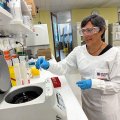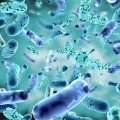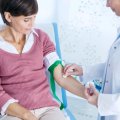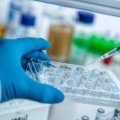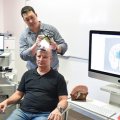Queensland Premier Anna Bligh has announced a major new collaboration between DSM Biologics (The Netherlands), The University of Queensland’s Australian Institute for Bioengineering and Nanotechnology (AIBN), and the State Government.
The collaboration involves the development of next-generation smart medicines, called biologics, at a $65 million scale-up facility under construction at the Princess Alexandra Hospital.
Biologics are medicines based on natural proteins made using DNA technology, offering exciting new treatment options for a wide range of diseases including cancer and auto-immune disorders.
Biologics may be used for a variety of medical conditions for which there are no other treatments – and offer the only known potential treatment for Hendra virus infection.
The collaboration makes it possible for both development and potential large-scale commercial production of the experimental Hendra virus antibody, among other therapeutics, in Queensland.
DSM Biologics will operate the scale-up facility, owned by the Queensland Government entity Biopharmaceuticals Australia Pty Ltd, under construction next to the Translational Research Institute (TRI). The facility will produce clinical and commercial grade biologics for global markets.
Ms Bligh, DSM Biologics President Karen King and AIBN Director Professor Peter Gray inspected progress at the new scale-up facility this week.
“I can announce that DSM Biologics has signed a Memorandum of Understanding with the University of Queensland’s AIBN, completing a vital link in the chain between biopharmaceutical research and manufacturing,” Ms Bligh said.
“This announcement represents the final steps in ensuring that Queensland is able to seamlessly take research into new human therapeutics through to human clinical trials and subsequent production.”
Ms King said the announcement represented a significant strengthening and deepening of DSM Biologic’s links and involvement with Brisbane researchers.
“The expertise at AIBN is very complementary to DSM’s skills. AIBN has world-class experience in mammalian cell line development,” Ms King said.
Professor Gray said the collaboration was very much a product of the Queensland Government’s Smart State strategies and was fitting recognition of the skill base and facilities developed in the state.
“The collaboration with DSM will ensure that Australian bioresearchers will be able to rapidly progress from lab work to late-stage research in a clinical setting using high-purity material developed in Brisbane,” he said.
Ms Bligh announced DSM’s involvement with the Biopharmaceuticals Australia facility during BIO 2010 in Chicago, along with $7million in seed funding from the State Government.
Considered to be at the forefront of biomedical research, biologics are created by biologic processes rather than being chemically synthesized. Biologics-based medicines now account for 17 per cent of total global therapeutic sales.
Erik de Wit
Marketing and Communications Manager
Australian Institute for Bioengineering & Nanotechnology
The University of Queensland
ST LUCIA Q 4072
T: 61 7 3346 3962
M: 0427 281 466
E: e.dewit@uq.edu.au
.jpg)




